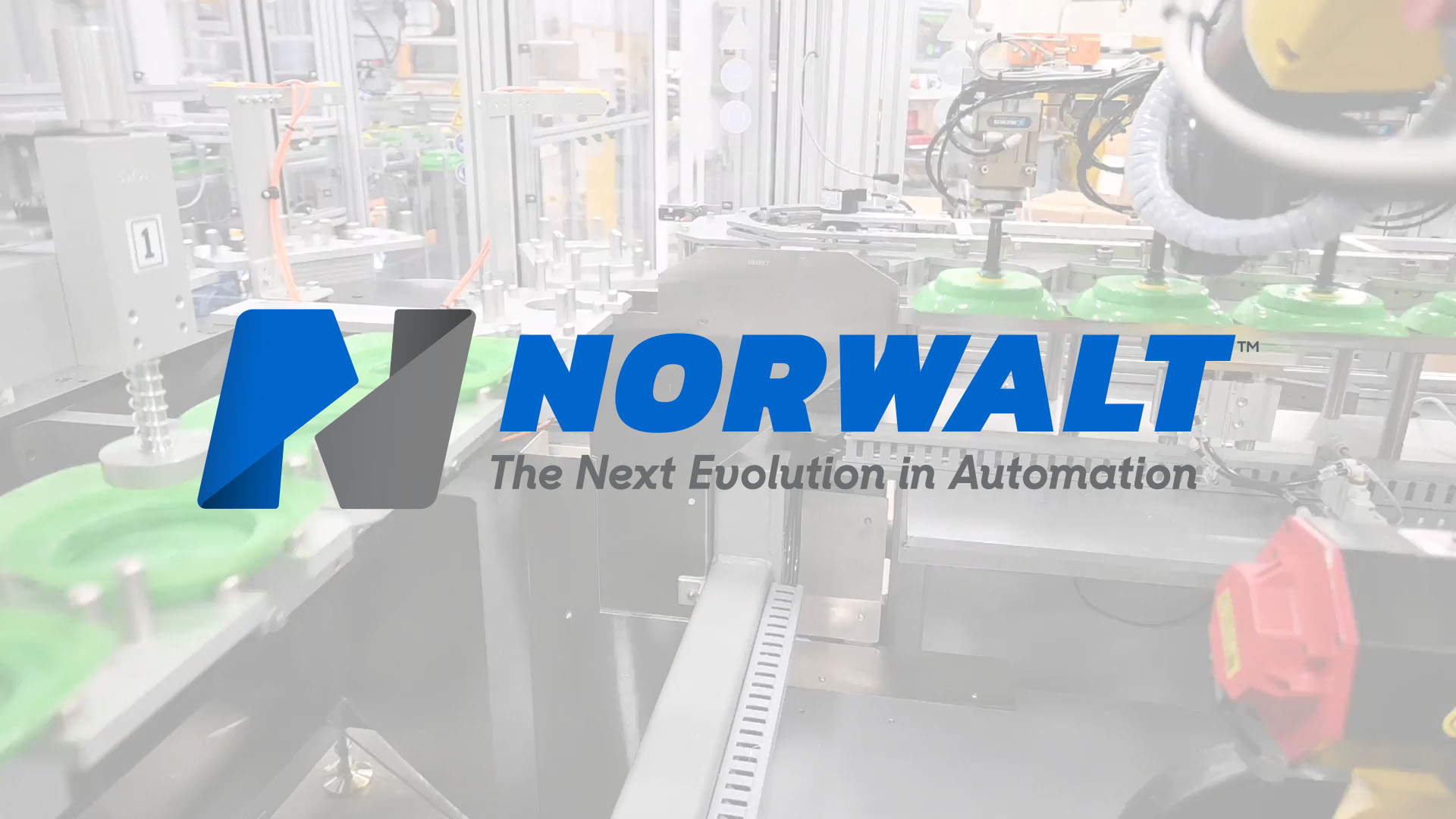
NORWALT DESIGN FINDS TIME FOR EMPLOYEE UPSKILLING AMID RAPID GROWTH
by
NJMEP
Background
Norbert Seitel and Walter McDonald founded Norwalt Design in Whippany in 1971, before expanding and moving operations to Randolph in 1988. Since Norwalt’s doors first opened, they’ve dedicated themselves to producing machines of unparalleled quality, offering superior customer service, and consistently pushing the boundaries of innovation through cutting-edge design. Over the years, their commitment to excellence and continuous growth has positioned them as the preferred and trusted provider of elite automation machinery. From the initial design phase to the final build, they relentlessly challenge limits and overcome barriers to deliver the most efficient and innovative solutions.
Mike Seitel, CEO of Norwalt and second generation executive explains, “We were working with all the big consumer goods companies on building their custom machines, and now we’ve gone further,” he says. “When COVID hit, we were put under demand to build a lot of the test kit machines and machines for the vaccine,” adds Seitel, “Once that was over, we actually held those customers and now they’re coming back to us for additional work, and we’ve had to expand to where we opened a second facility.”
The company plans to expand again next November to a third facility as orders continue to flood in for Norwalt’s expertise in precision machine manufacturing. Norwalt is also working on a secret project that involves a new patent for sustainable packaging, something that Seitel says is going to revolutionize the industry.
When asked how a small precision machine manufacturing outfit was able to make such a big splash in the major consumer goods market, “We did a pivot in the way we worked in terms of quality and service,” says Seitel, “We made sure it was always the best machine you could buy and we didn’t question any customer complaints or issues.”
Challenge
With the rapid growth that Norwalt has been experiencing comes its own set of challenges, most notably in facilitating programs like employee training and upskilling. In the wake of COVID, where Norwalt’s production was increased significantly to keep up with demand for COVID Test Kits and other essential goods, the Norwalt team needed assistance in the way of training facilitation. Seitel says that they try to implement training whenever feasible, but due to the amount of business growth the company has experienced in the past year, it’s been difficult to dedicate the time—a sentiment echoed by Keith Harman, Director of Business Development and Technical Sales at Norwalt.
“It’s very taxing when you have huge projects for like three months,” says Harman.
“There’s not a lot of help for manufacturers here, in the state,” adds Seitel, “Well, there is, but it’s very splintered.” But Seitel knows he can always count on NJMEP when he needs resources to solve one of the many challenges manufacturers face in New Jersey.
Solution
“We were doing LEAN 5S training there [at CCM] and we went through the state, where you got money back for the training, and we worked with NJMEP on that,” says Seitel. And that’s where the relationship between Norwalt and NJMEP began. So, with a need for training and not a lot of flexibility to implement, Norwalt reached out to their account manager at NJMEP again to get some training done for their operators—this time it would be for Geometric Dimensioning and Tolerancing training, an essential skill for an operator at Norwalt working with the latest technology in machine design and production.
The course provided Norwalt’s operators with uniformity in drawing specifications and interpretation, and geometric tolerancing to reduce controversy, guesswork, and assumptions throughout the manufacturing and inspection process. Operators learned that when GD&T is used properly it will improve communication and result in better product design, and can also increase product tolerances, saving the business time and money.
The following steps were taken:
Project Title – Geometric Dimensioning & Tolerancing Training (2 Days Total)
- Introduction; Dimensioning and Tolerancing Fundamentals – 2 Hours
- Symbols, Terms, and Rules; Datums – 2 Hours
- Form controls – Flatness, Straightness, Circularity, Cylindricity, Free state variation – 2 Hours
- Orientation – Parallelism, Perpendicularity, Angularity – 2 Hours
- Position, General – Specifying the position tolerance, Regardless of feature size, Maximum material condition, Shift tolerance, Boundary conditions, “0” Positional Tolerancing – 2 Hours
- Position, Location – Fasteners, Projected Tolerance Zones, Multiple patterns of features, Composite positional tolerancing, Two single-segment feature control frames, Nonparallel holes, Counterbored holes, Noncircular features, Symmetrical features – 2 Hours
- Position, Coaxiality – 2 Hours
- Concentricity and Symmetry; Runout; Profile – 2 Hours
Results
The following results were cited as a direct result of engaging with NJMEP 12-18 months following the conclusion of the project outlined above.
- New Sales: $250,000
- Retained Sales: $250,000
- New Jobs: 6
- Jobs Retained: 4
- Cost Savings: $175,000
When asked if there were any ways in which NJMEP has added value to their business, Seitel had this to say: “In the past, [NJMEP] has been the voice of manufacturing with the government,” he responds, “That’s probably the biggest help.”
“It’s indirect, a lot of the help,” adds Harman. “All the work you do helps [manufacturers].”
“In the past, [NJMEP] has been the voice of manufacturing with the government. That’s probably the biggest help. It’s indirect, a lot of the help. All the work you do helps [manufacturers].”
Keith Harman, Director of Business Development and Technical Sales at Norwalt
